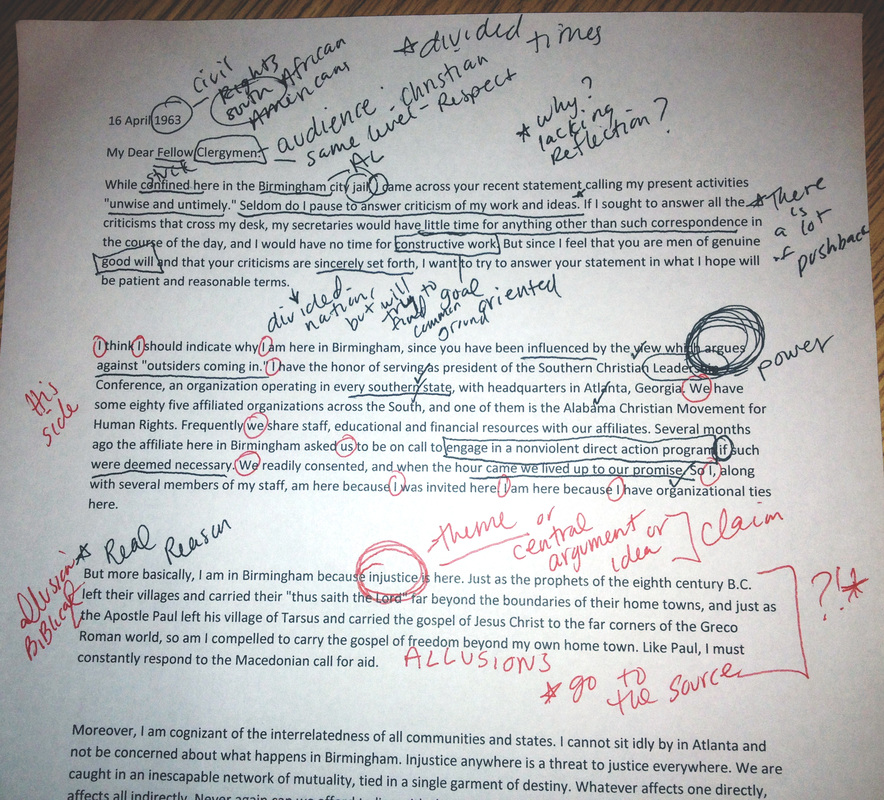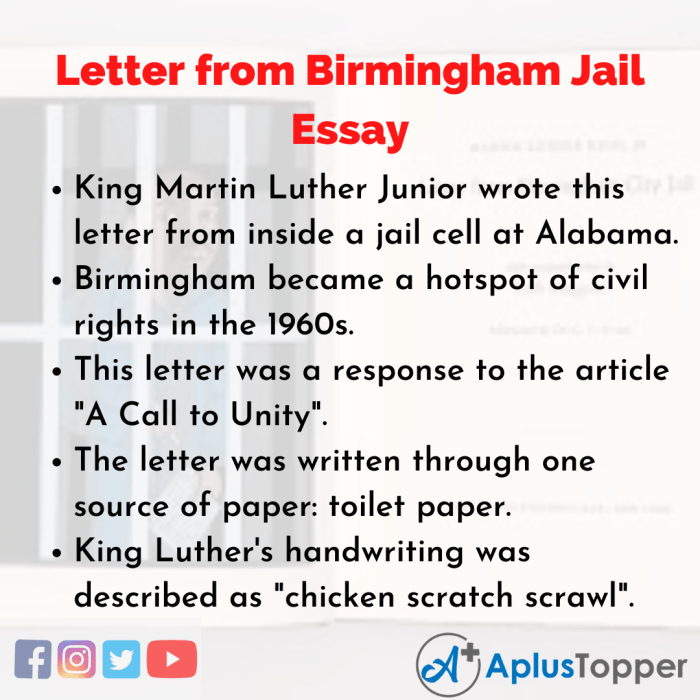Letter from Birmingham Jail Annotated offers an in-depth examination of Dr. Martin Luther King Jr.’s iconic letter, providing a nuanced understanding of its historical context, rhetorical strategies, and lasting impact on the civil rights movement and beyond.
This annotated edition delves into the letter’s intricate structure, highlighting key passages and providing insightful commentary to illuminate King’s powerful use of language and persuasive techniques.
Historical Context

The civil rights movement in Birmingham, Alabama, reached a boiling point in the spring of 1963. Led by Martin Luther King Jr. and the Southern Christian Leadership Conference (SCLC), activists organized nonviolent protests against the city’s segregation laws and police brutality.
King’s arrest on Good Friday, April 12, 1963, for violating a court injunction against demonstrations, sparked the publication of his famous “Letter from Birmingham Jail.” Written in response to a group of white clergymen who criticized his tactics, the letter defended the principles of nonviolent resistance and the urgency of direct action in the face of systemic injustice.
Rhetorical Strategies

King employed a powerful combination of rhetorical strategies to persuade his audience.
Biblical Allusions and Religious Language
King drew heavily on biblical allusions and religious language, evoking the teachings of Jesus Christ and the prophets to ground his arguments in a moral and ethical framework.
Appeals to Justice and Morality, Letter from birmingham jail annotated
King appealed to the audience’s sense of justice and morality, arguing that segregation and discrimination were fundamentally wrong and unjust. He emphasized the importance of treating all individuals with dignity and respect, regardless of their race.
Persuasive Techniques
King used various persuasive techniques, including logical reasoning, emotional appeals, and vivid imagery, to build a compelling case for his position.
Key Themes

The “Letter from Birmingham Jail” articulates several central themes that have become synonymous with the civil rights movement.
Nonviolent Resistance
King firmly advocated for nonviolent resistance as the most effective means of achieving social change. He argued that violence only perpetuates the cycle of violence and undermines the cause of justice.
Justice
King defined justice as the “equal distribution of benefits and burdens” and argued that segregation and discrimination violated this fundamental principle.
Importance of Direct Action
King emphasized the importance of direct action, such as protests and boycotts, in challenging unjust laws and practices.
FAQ Corner: Letter From Birmingham Jail Annotated
What is the significance of the “Letter from Birmingham Jail”?
The letter serves as a powerful articulation of King’s philosophy of nonviolent resistance and a critique of the injustices faced by African Americans during the civil rights movement.
How does King use biblical allusions and religious language in the letter?
King draws upon biblical passages and Christian principles to support his arguments for justice and equality, resonating with a broad audience and emphasizing the moral imperative of his cause.
